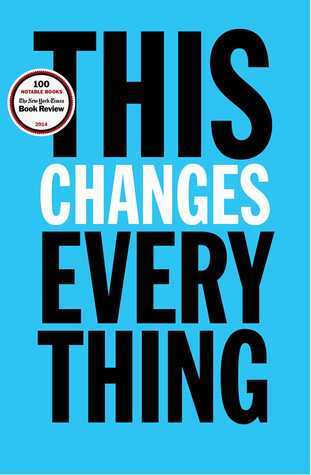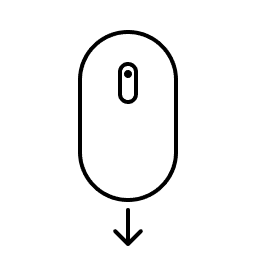Snippets about: Sustainability
Scroll left and right !
Cultivating Regeneration: Principles For The New Economy
To build a regenerative society, we can follow these core principles:
- Reduce waste and consumption while increasing quality of life
- Power our lives with 100% renewable energy
- Source food, water and materials locally and sustainably
- Create closed-loop production systems that don't generate pollution
- Protect and restore forests, wetlands, and other carbon-absorbing ecosystems
- Treat care work and community engagement as valuable labor
- Make economic decisions democratically and for the public good
- Share and redistribute wealth to reduce inequality
- Respect Indigenous rights and traditional ecological knowledge
- Build resilience to cope with unavoidable climate shocks
By designing human systems to mimic nature's principles of balance, reciprocity and regeneration, we can turn the crisis into an opportunity to improve quality of life for all. It starts by respecting our interdependence with the living world.
Section: 3, Chapter: 13
Book: This Changes Everything
Author: Naomi Klein
Plant Trees For Wealth, Health And Sustainability
Speck advocates for extensive tree planting as one of the most effective investments cities can make. He outlines many benefits:
- Increased property values and tax revenues. One study showed $1.1 billion in added property value from street trees.
- Reduced urban heat island effect and air conditioning costs
- Absorption of CO2, with street trees being 10x more effective than other vegetation
- Reduced stormwater runoff entering sewer systems
- Traffic calming and increased safety The author calculates a 12:1 ROI for street tree planting and maintenance. Cities must invest more to reap the incredible benefits.
Section: 2, Chapter: 8
Book: Walkable City
Author: Jeff Speck
The Paradox Of Natural Gas As A "Bridge Fuel"
Many governments promote natural gas as a "bridge fuel" to transition from coal to renewable energy. In theory, gas has lower emissions than coal when burned. However, the chapter argues that in practice, under current economic models, gas will not serve as a bridge to clean energy but rather as an impediment.
For gas to be a true bridge, there would need to be strictly enforced regulations to ensure it only substitutes for coal and doesn't displace renewables. And gas extraction would need to be phased out completely within a couple decades - an approach incompatible with the business models of private gas companies. As long as the profit motive dominates, gas companies will keep expanding and delaying the needed transition.
Section: 1, Chapter: 3
Book: This Changes Everything
Author: Naomi Klein
Living Close to Daily Needs Provides Far Greater Eco-Benefits Than Having a "Green" Home
Many people think they are helping the environment by purchasing a LEED-certified "green" home. However, the energy efficiency gains of green building pale in comparison to the energy savings from living in a walkable neighborhood close to jobs, schools, shopping and other daily destinations.
- A conventional home in a walkable neighborhood loses out to an energy-efficient "green" home in drivable sprawl once transportation energy usage is factored in. The green home used twice as much energy overall.
- Household energy comprises only a small fraction of total energy use. Transportation is a much bigger slice of the pie.
- LEED building standards only marginally reduce overall energy consumption compared to the savings from walkable urbanism.
Section: 1, Chapter: 3
Book: Walkable City
Author: Jeff Speck
How Fossil Oligarchs Thwart Moral Mobility
Powerful companies, especially in fossil fuels, are using their wealth to prevent society from enacting the changes we need to expand mobility for the next generation.
Climate change affects the poor and people of color first - overcoming the selfish escapism of fossil oligarchs and building a sustainable future is a prerequisite for freedom.
Section: 1, Chapter: 3
Book: On Freedom
Author: Timothy Snyder
Reversing Electricity Privatization Crucial For Green Transition
the 1990s, many countries privatized their public electric utilities as part of the push for deregulation. But in recent years, hundreds of cities and towns in Germany have voted to "re-municipalize" their electricity grids - taking them back into public ownership.
The example of the city of Hamburg is instructive. In 2013, citizens there voted to reverse the privatization of their utility in order to speed the transition to clean energy. Private utilities were moving too slowly and prioritizing profits over climate concerns. Re-municipalization has allowed for more democratic control over the energy transition.
Section: 1, Chapter: 3
Book: This Changes Everything
Author: Naomi Klein
Moving From Extraction To Renewal
The final chapter argues that responding to the climate crisis is not just about stopping the fossil fuel economy but also about building a new regenerative economy in its place. It looks at real-world examples of communities restoring ecosystems, growing local food systems, democratizing energy production, and creating a culture of caretaking rather than extraction.
Drawing on Indigenous teachings about the duty to protect life for future generations, the chapter calls for a paradigm shift from dominance to reciprocity, from fragmentation to connection, from scarcity to abundance. Moving from extraction to renewal, it concludes, is our only chance to leave our children a world worth inheriting.
Section: 3, Chapter: 13
Book: This Changes Everything
Author: Naomi Klein
The "Inconvenient Truth" About Electric Cars
Many people view electric vehicles (EVs) as the answer to reducing transportation-related greenhouse gas emissions. However, EVs have significant limitations and unintended consequences:
- In most states, the majority of electricity is still generated from coal-fired power plants. In some cases, coal is nearly twice as carbon-intensive as gasoline per unit of energy.
- The reduced cost-per-mile of electricity vs. gasoline creates a powerful incentive to drive more. This "rebound effect" negates efficiency gains.
- Emissions from producing and maintaining roads, vehicles and other infrastructure add another 50% on top of tailpipe emissions.
- Even with better fuel efficiency, transportation will remain the largest and fastest-growing energy sector.
Section: 1, Chapter: 3
Book: Walkable City
Author: Jeff Speck
The Environmental Reckoning
Each ChatGPT query uses roughly 10x more electricity than a Google search. Training GPT-3 consumed 1,287 megawatt-hours and generated massive carbon emissions. By 2030, data centers could use 8% of US power supply, compared to 3% in 2022.
The industry obscures this impact while making grand climate promises. Microsoft restarted Three Mile Island nuclear plant to power AI. Utility companies are delaying renewable transitions and keeping coal plants online. Meanwhile, vulnerable communities in water-stressed regions bear the costs while tech giants extract their resources under promises of progress.
Section: 3, Chapter: 12
Book: Empire of AI
Author: Karen Hao



